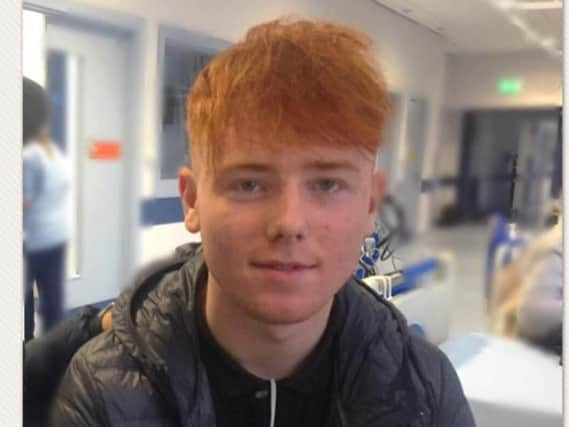Call to give young offenders phones in Scottish prisons


Wendy Sinclair-Gieben, the chief inspector of prisons, said allowing inmates to make calls to a select number of friends and family members had been shown to reduce violence and self-harm behind bars.
Ms Sinclair-Gieben was giving evidence to the Scottish Parliament’s justice committee following the publication last week of a review of mental health provision following two suicides at Polmont Young Offenders’ Institution which identified systemic failings and a lack of attention to those at risk.
Advertisement
Hide AdAdvertisement
Hide AdHM Inspectorate of Prisons for Scotland (HMIPS) was asked to carry out the work following the deaths last year of William Lindsay, 16, and Katie Allan, 21.
Ms Sinclair-Gieben said many teenagers were “welded” to their mobile phones and struggled with the loss of contact when held in custody.
She said: “You’re taking that away from them, but also you’re taking away their primary vehicle for communication.
“If you are distressed at night, currently you can ring a bell and somebody will come and give you a phone to ring Samaritans. That requires a level of self-help-seeking behaviour, whereas, in fact, if you can just phone a helpline, phone your family from your room without having to stigmatise yourself, I think that would be a huge benefit. It’s a quick win.”
Asked if she meant in-cell phones rather than mobile phones, she added: “Absolutely. They are cordless phones, but they have to dial in their pin number and can only dial the numbers they already agreed. Very safe. The other advantage is that staff can listen in to the ones in the middle of the night...”
An evidence review carried out for last week’s HMIPS report found Scotland consistently has a higher prison suicide rate than England and Wales, with the number of inmates taking their own lives on the rise.
It also found that more than two-thirds of suicides of young people take place within three months of the person being detained.
The report made a total of 80 recommendations and seven key recommendations, including the minimisation of social isolation during the early weeks in custody and the introduction of a bespoke suicide and self-harm strategy for young people.